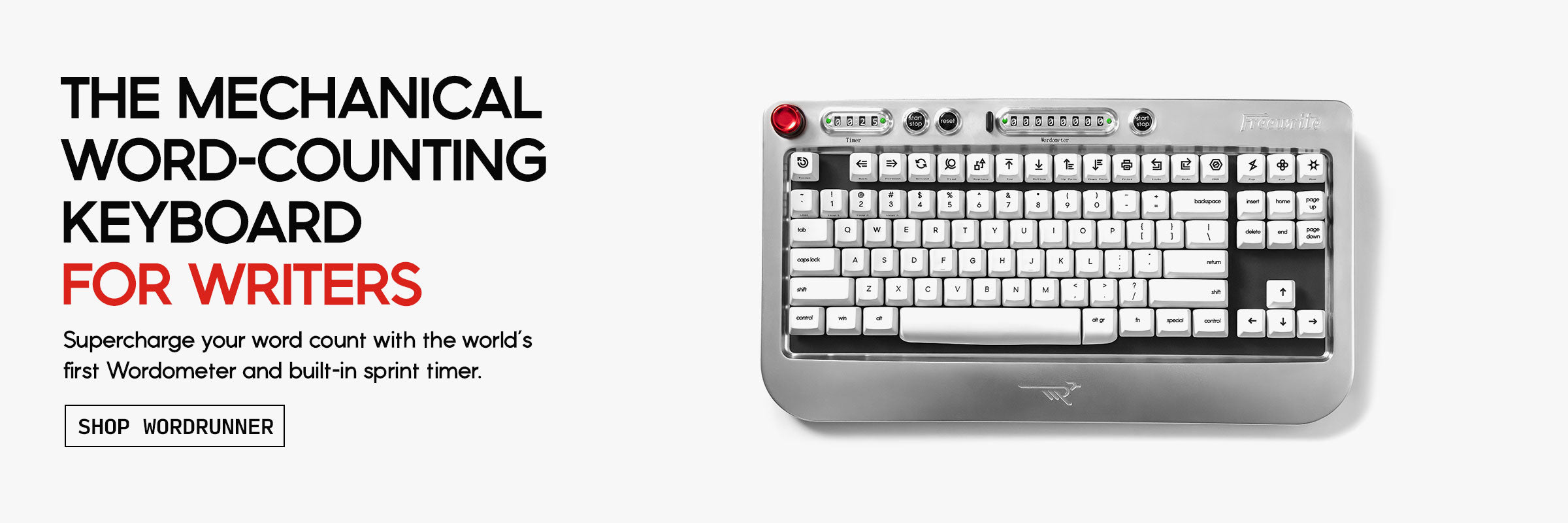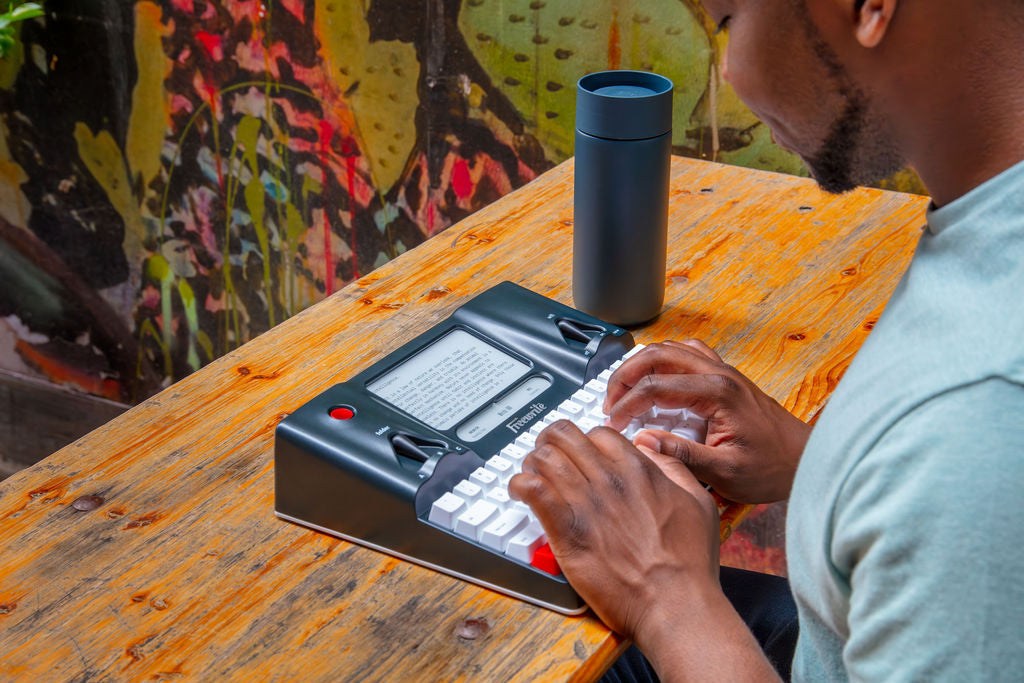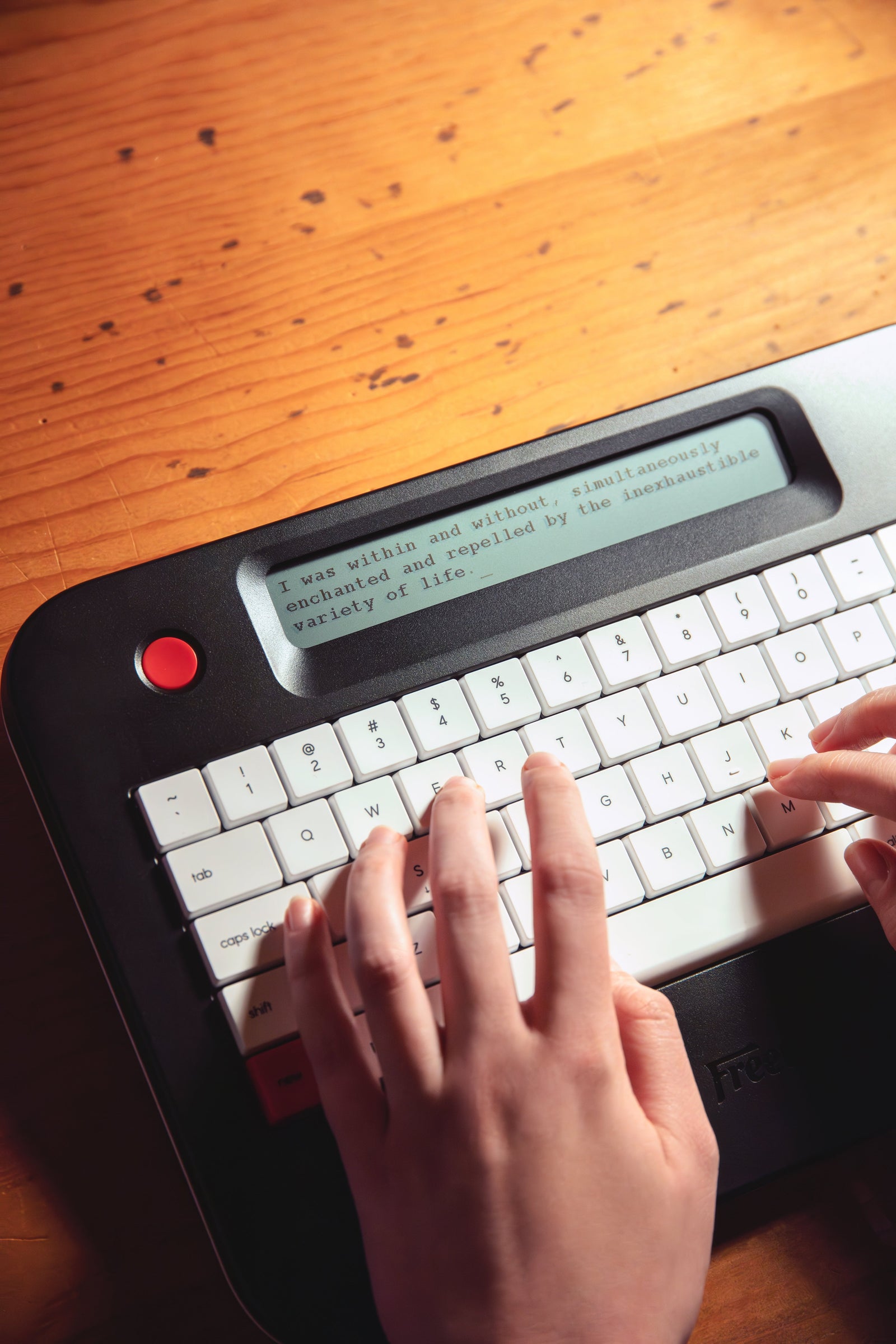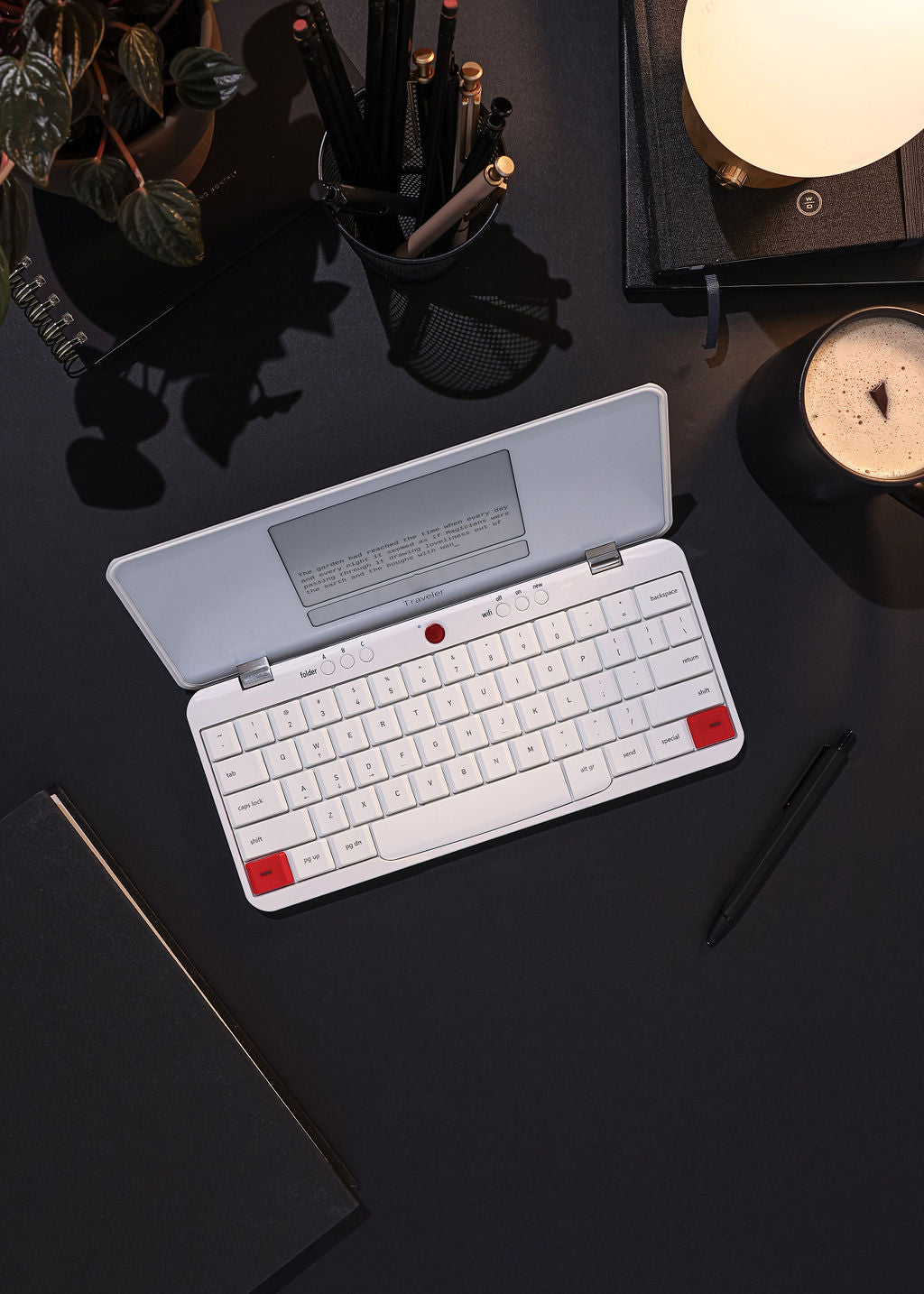If you’ve ever wondered why some keyboards feel so satisfying to type on, the secret might be a mechanical keyboard. Unlike regular keyboards, mechanical ones use special switches under each key, making typing feel more responsive and fun.
Whether you’re working, gaming, or just texting, mechanical keyboards offer a different experience that many people swear by.
Let’s dive in and see what makes them so popular!
What Makes a Keyboard “Mechanical”?
You might wonder, what exactly makes a keyboard “mechanical”? After all, aren’t all keyboards mechanical in some way? The key difference is in the type of switches they use.
Most regular keyboards - like the ones that come with your laptop or a basic desktop - use something called membrane or scissor-switch technology. These keyboards rely on a thin, flexible membrane that registers your keypress when you push down. It’s simple and cheap to make but often feels mushy or less responsive.
Mechanical keyboards, on the other hand, use individual spring-activated switches under each key. These switches are little mechanisms made of plastic, metal springs, and electrical contacts. When you press a key, the switch moves down, the spring compresses, and the electrical contacts connect, sending a signal to your computer. This design gives each key a satisfying “click” or tactile bump, depending on the switch type.
In short, mechanical keyboards have physical switches that create a more precise, reliable, and often more enjoyable typing experience compared to membrane or scissor-switch keyboards.
Why Do People Choose Mechanical Keyboards?
Improved Typing Feel and Responsiveness
People choose mechanical keyboards for a bunch of reasons, but the main one is the typing feel. Typing on a mechanical keyboard feels way more responsive and satisfying. The keys don’t just sink in; you get clear feedback, whether it’s a soft bump or a sharp click, so your fingers know exactly when a key has been pressed. This makes typing faster, more accurate, and, honestly, a lot more fun.
Customization Options
Another big draw is customization. Mechanical keyboards come with tons of options to fit your personal style and needs. You can pick different switches that sound quieter or louder, feel lighter or heavier. Plus, there are endless keycap designs, colors, and even keyboard layouts. This lets you build a keyboard that’s truly your own, both in how it looks and how it feels.
Community and Hobbyist Culture
There’s also a whole community around mechanical keyboards. Many people enjoy collecting keyboards, sharing builds, and talking about their favorite switches or keycaps. It’s a hobby that mixes tech, art, and even a bit of nostalgia, making it a fun way to connect with others who love keyboards as much as you might.
Ergonomic and Health Benefits
Lastly, mechanical keyboards can offer some ergonomic and health benefits. Because you don’t have to press the keys all the way down to register a stroke, your fingers and wrists experience less strain. Some keyboard designs also help improve posture and reduce discomfort during long typing sessions, which is great if you spend a lot of time at your computer.

Meet the Wordrunner Keyboard: Designed by Writers, for Writers
After understanding why mechanical keyboards offer such a satisfying and precise typing experience, it’s clear why so many people prefer them over regular keyboards. But what if you could have a keyboard designed specifically to support the unique needs of writers? That’s exactly what we set out to create with theWordrunner. Tailored to help you maintain focus, track your progress, and enjoy every keystroke, Wordrunner takes the mechanical keyboard experience to the next level for those who write for a living or passion.
We built the Wordrunner keyboard specifically for writers like us who need a tool that truly supports our creative flow without distractions. Unlike typical keyboards designed for gaming or general use, this one focuses entirely on helping us write better and faster. We included a unique mechanical Wordometer that physically tracks word count in real time so we can keep momentum going without losing focus. With its solid metal body and tactile mechanical switches, we made sure it feels great to type on and is durable enough to last through countless writing sessions.
Why This Keyboard:
-
Real-time word count tracker to boost productivity
-
Built-in timer to help you stay focused on writing sprints
-
Customizable macro keys tailored for writers’ most-used functions
-
Durable metal build designed to last a lifetime
-
Multi-device wireless and wired connectivity for flexible use
Check out theWordrunner Kickstarter to discover all the details and find out what comes with it.
How Do Mechanical Keyboards Work?
Mechanical keyboards work through a combination of keycaps, mechanical switches, and a circuit board working together. When you press a keycap, it pushes down on the switch beneath it. Each switch contains a spring and metal contacts that complete an electrical circuit when pressed. This signals the keyboard’s circuit board that a specific key has been pressed.
Here’s a simple breakdown of the process:
-
Keycap: The part you physically press with your finger. It transfers your press down to the switch.
-
Mechanical Switch: Located under each keycap, it has a spring and metal contacts. When pressed, the switch closes the circuit.
-
Circuit Board: Detects the closed circuit from the switch and sends a signal to your computer.
-
Signal Processing: The keyboard’s internal controller processes the signal and tells your computer which key was pressed.
-
Computer Input: Your computer receives the input and responds by displaying the character or performing the assigned action.
Because each key has its own individual switch, mechanical keyboards provide precise feedback and quick response times. This setup makes every press feel deliberate and satisfying compared to regular membrane keyboards that rely on a single rubber dome sheet.
Why Mechanical Keyboards Feel Different
Mechanical keyboards feel different because they use individual switches under each key, unlike membrane keyboards that rely on rubber domes. Each key press activates a mechanical switch that provides tactile feedback, giving you a distinct feel with every keystroke. Whether it’s a soft bump or a sharp click, the experience is more engaging and satisfying.
This tactile feedback is what makes mechanical keyboards stand out. For gamers, the quick response time and precision are key, while writers enjoy the comfort they offer during long typing sessions. The distinct feel can make typing a lot more enjoyable, with many people finding it more fun than using traditional keyboards.
Another big advantage of mechanical keyboards is their durability. The switches used in these keyboards last much longer than those in membrane models, often with a lifespan of millions of keystrokes. This makes mechanical keyboards feel solid and reliable for years, providing great value for those who use their keyboards daily.
Choosing the Right Mechanical Keyboard for You
Pick the Right Switch Type
Your keyboard’s switches define how each key feels and sounds. Linear switches offer a smooth, quiet press without any bump. Tactile switches provide a noticeable bump that helps with accuracy, without adding noise. Clicky switches give both a tactile bump and an audible click, for that classic typing feedback.
Decide on the Layout
Full-size keyboards have all keys including the number pad, function row, and navigation keys, ideal if you use those keys often. Tenkeyless (TKL) models drop the number pad to save space but keep other keys intact. Compact layouts remove more keys for maximum desk space efficiency or portability.
Consider Customization Features
Hot-swappable switches let you easily swap out switches without soldering, making it simple to personalize your typing feel. Programmable keys allow you to assign macros or shortcuts, useful for work or gaming. RGB lighting adds a visual flair and can improve key visibility.
Choose Your Connectivity
Wired keyboards offer consistent low-latency performance, favored by gamers and professionals. Wireless options like Bluetooth or 2.4 GHz free you from cables and help keep your desk neat, great for casual use or mobile setups.
Match Your Desk and Style
The right keyboard fits comfortably on your desk and matches your personal style. Whether you prefer a clean, minimalist design or a flashy RGB centerpiece, picking a keyboard you enjoy using and looking at makes a big difference.
Conclusion
Mechanical keyboards offer a unique and enjoyable typing experience that is hard to match with standard membrane keyboards. Their customizable features, tactile feedback, and long-lasting durability make them a popular choice for gamers, writers, and professionals alike. Whether you’re looking for precision, comfort, or just a more enjoyable typing experience, a mechanical keyboard can meet your needs. With so many options available, there’s a mechanical keyboard out there that’s perfect for you.
FAQ
What’s the difference between mechanical and membrane keyboards?
Mechanical keyboards use individual switches under each key, providing tactile feedback and more durability. Membrane keyboards use a rubber dome layer that doesn’t offer the same responsiveness or lifespan.
Are mechanical keyboards better for gaming?
Yes, mechanical keyboards are often preferred for gaming due to their faster response times, precision, and tactile feedback. Certain switches are designed to register keystrokes quickly, which can be an advantage in fast-paced games.
Can I customize my mechanical keyboard?
Many mechanical keyboards offer customization options, such as changing keycaps, swapping switches (hot-swappable models), and adjusting lighting. Features like QMK or VIA support allow for easy key remapping and macros.
Do mechanical keyboards last longer than membrane keyboards?
Yes, mechanical keyboards are generally more durable. The switches in mechanical keyboards are rated for millions of keystrokes, making them more reliable over time compared to the rubber domes used in membrane keyboards.
Are mechanical keyboards noisy?
It depends on the type of switch. Clicky switches produce an audible sound when pressed, while tactile switches give feedback without the noise. Linear switches are the quietest, offering a smooth key press with no bump or click.























